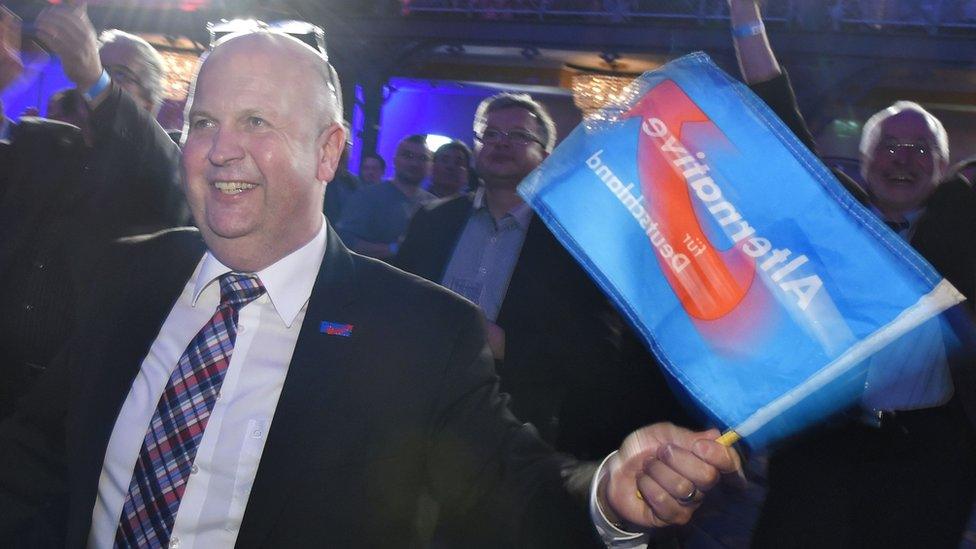Germany AfD conference: party adopts anti-Islam policy
- Published
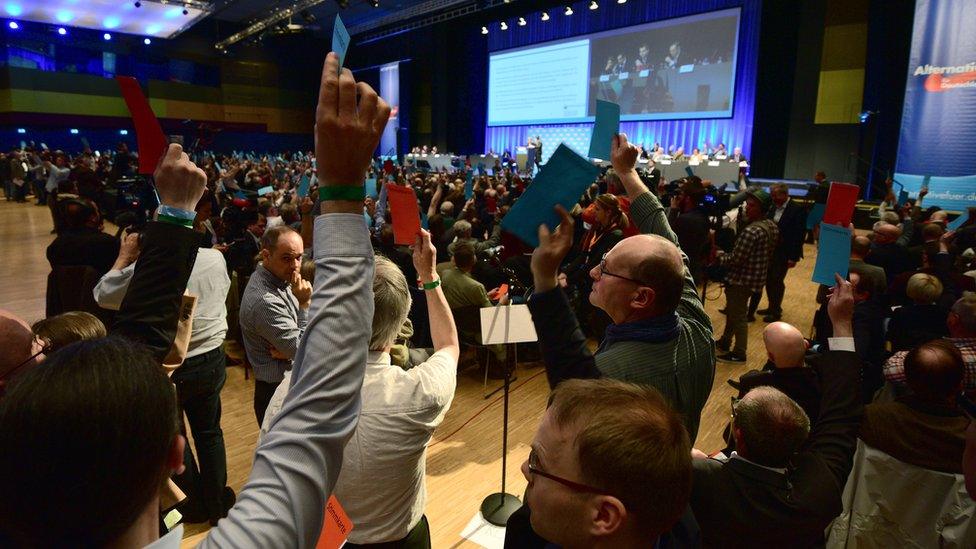
The party congress took place in the southern German city of Stuttgart
The German right-wing party Alternative fuer Deutschland (AfD) has adopted an explicitly anti-Islam policy.
Delegates at a party conference adopted a ban on minarets, the call to prayer and the full-face veil, saying Islam was "not part of Germany".
A delegate who called for more local dialogue with Muslim groups was booed.
The start of the conference in Stuttgart on Saturday was disrupted by clashes and hundreds of left-wing protesters were detained.
Meanwhile, hackers published the addresses of more than 2,000 AfD members on a left-wing website.
Germany jolted by right-wing poll success
Is Europe lurching to the far right?
Guide to Europe's nationalist parties
Formed three years ago, AfD achieved gains in three state elections in March, after campaigning against Chancellor Angela Merkel's decision to accept a million migrants in 2015.
Mrs Merkel's Christian Democrats (CDU) and other established parties have ruled out going into coalition with AfD.
AfD's other proposals include withdrawal from the euro and the reintroduction of conscription, but there are splits within the party, including between its less hardline wing and the leadership.

More on AfD
Founded in 2013 by Bernd Lucke, Alexander Gauland and Konrad Adam to oppose German-backed bailouts for poorer southern European countries
Mr Lucke, seen as a moderate, wanted Germany out of the euro but his colleagues were unhappy that he wanted to focus exclusively on euro-related issues
He quit the party in early July 2015, arguing it was becoming increasingly xenophobic
Right-winger Frauke Petry replaced him as party leader
It became the first anti-euro party to win seats in a German regional parliament, receiving almost 10% of the vote in the eastern German state of Saxony in 2014, and went on to win seats in four other states' parliaments in 2014 and 2015
The party had seven MEPs elected in the 2014 European elections (including Mr Lucke), but only two remain party members
AfD was part of the European Conservatives and Reformists Group, like the UK's Conservatives, but one of its two MEPs has recently been expelled from the group over comments on shooting refugees

The rise of nationalism in Europe
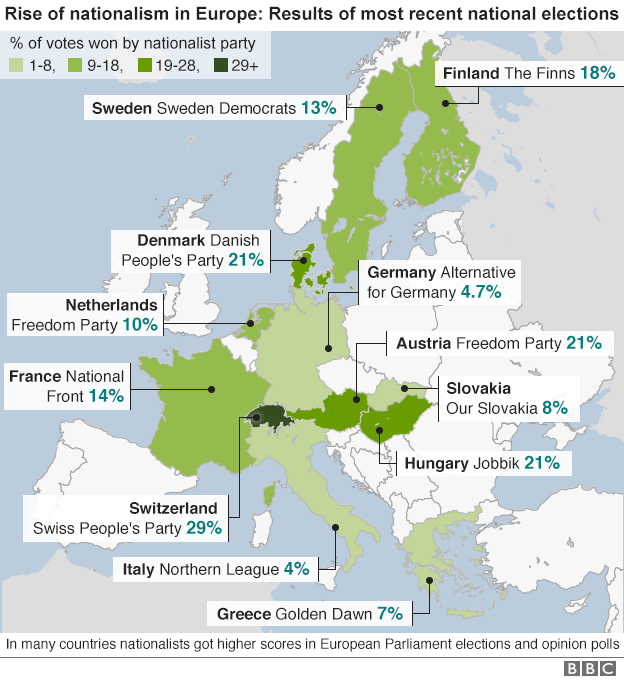
- Published30 April 2016
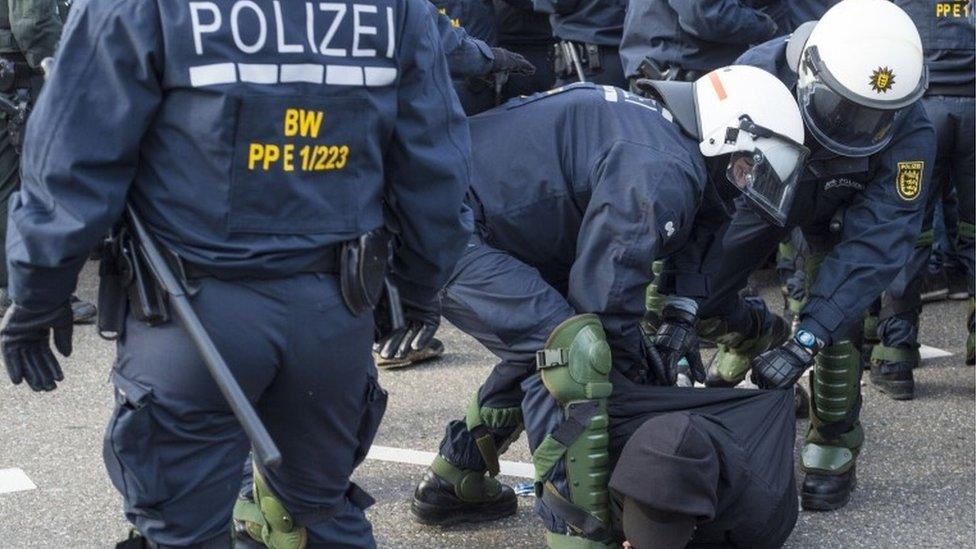
- Published10 March 2016
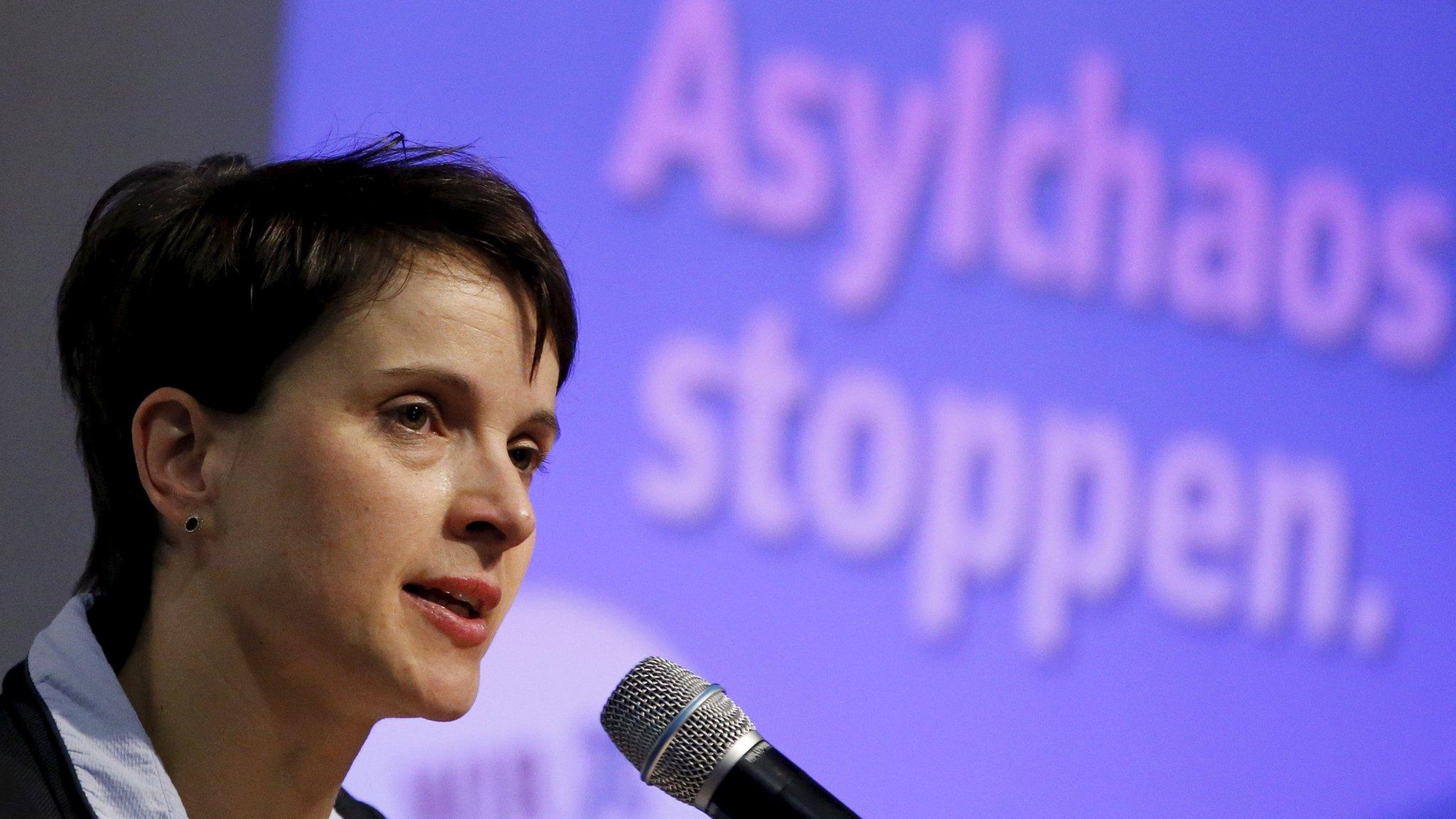
- Published14 March 2016
